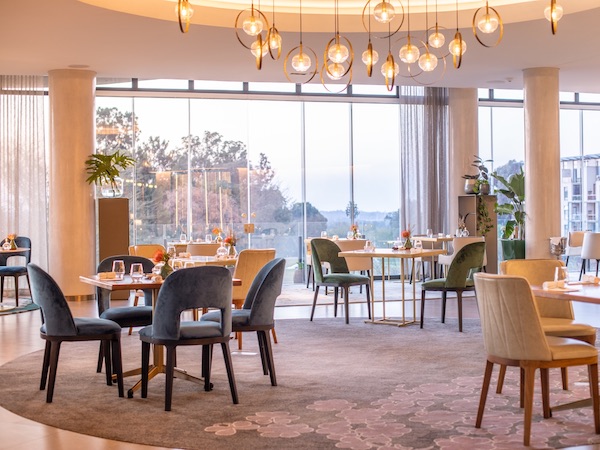News
Searching for the Holy Grail of coffee in Oxford
Monday, April 14th, 2014It was the scent that started it all…an elusive whiff on a passing breeze that captured my attention and dissolved all thoughts of seeing the Bodleian Library, Radcliffe Camera and Trinity College in favour of following my nose through the alleyways of Oxford. In that instant, I completely understood why Alice followed the White Rabbit (and why Lewis Carroll was inspired to chronicle her adventures in Wonderland, from Oxford): I, too, was late, for a very important date. Is there anything better than that first cup of really good coffee?

Photograph by Puuikibeach
The Missing Bean on Turl Street has something of a legendary status in Oxford. It’s easy to miss, unless the glorious aroma of roasted coffee catches you as you wander past. As I sat on the sidewalk in the early spring sunshine, feeling the warmth of the coffee spread to my fingertips, I had a thought: surely, if there was one specialist coffee shop in a city of scholars and saints, there must be more? Thus my purpose for Oxford was firmly established: in homage to the noble bean, I would discover the best specialist coffee that money can buy.
Craft coffee is not what you will find in a Starbucks, Costa or Nero. (You won’t even find it at Oxford’s oldest coffee shop, the Queen Anne, which has been brewing since 1654.) A perfect cup of coffee is the result of science and passion, in equal measure. Everything matters when it comes to artisan coffee brews: the beans, the roast, the grind, the water and the amount of time the water is in contact with the coffee grounds.
The underground coffee culture is slowly but surely taking hold in the streets of Oxford, and the Missing Bean is the self-anointed “pioneer of the Oxford independent coffee revolution”. But I wanted to find more devotees to this culture.
Several unmentionable, battery-acid disasters later, my nose had led me to four more temples of the bean: La Cucina (which also provides remarkable tiramisu), Pierre et Victoire and Pedal and Pour (both on Little Clarendon Street) and Jam Factory (next to the central bus terminal).

Photograph by Waferboard
It was at Jam Factory that I made the most memorable discovery. One of their key suppliers is a relatively new specialist coffee roaster, Exotic Coffee http://www.exoticcoffeeroasters.com. If the Missing Bean is the pioneer of the coffee culture movement, Exotic Coffee is the Holy Grail.
Exotic Coffee uses single-origin arabica coffee from family-owned farms in Colombia. The beans pack a flavour punch, but are slightly lower on caffeine than the robusta species.
Exotic Coffee owner Milly Bar (from a long line of Colombian coffee farmers) and her nephew Alfredo Filizolla plan to take over the world, one cup of coffee at a time. Milly knows all her suppliers; they are family and friends. Her beans are hand picked, washed, dried and imported to their factory outside Oxford, where they are roasted to order. Constant cupping during the roasting process results in a consistent, superb cup of coffee, every time.
Milly doesn’t just want to make you a fine cup of coffee, she wants you to understand exactly how much effort goes into making that memorable brew. She explains, “I want people to understand what I grew up with in Colombia. I remember sitting with my grandmother and listening to her talking about coffee roasting. It was like the beans were her children. Coffee is in our blood.”
Exotic Coffee is about to open its first coffee shop in the city, but for now their brew can be found at the Jam Factory and every Sunday at the Summertown market. Milly also regularly does coffee cuppings for the public and at various Oxford colleges. (Visit their website, http://www.exoticcoffeeroasters.com, for more details.)
Their most popular bean is the finca tamana, which Alfredo graciously brewed for me using three methods so that I could taste the difference: the siphon, the chemist and the espresso machine. “Personal preference obviously plays a role,” says Alfredo, “but specialist coffee and a good barista should always deliver. Coffee is like wine: you don’t just drink a good wine, you enjoy it, you feel it, you savour it. It is the same with coffee.”
I was blown away. Those three cups of coffee required reverent silence. And the Oxford Blend cappuccino Alfredo made me thereafter brought tears to my eyes. The roast was so fresh and the beans so good that the result was a glossy black gold, with fruity top notes, a deep chocolate aftertaste and not a hint of acidity. Pure coffee bliss.
Four cups along and full of beans, I can only say: bring on the coffee revolution!













It would appear that you are entirely ruined for future coffees in the library. A lovely piece that made me wish there was a “scratch and sniff” app.
Well how logical- after the buttery French pastries our resourceful Adventurer has us flaring our nostrils in search of that elusive perfect cup of coffee!
The City of Dreaming Spires would not have been the first place I would have thought of to seek out that turbo-boosting brew but will definitely keep it in mind -especially as Oxford is in my neck of the woods!
Thank you for providing another tantalizing offering- can we have some more please?
[…] By Shirley Fodor Eat Out […]
A little bemused over your comments that the Missing Bean is the pioneer of the coffee culture movement, in light of the fact that they hold the poorest hygiene ratings than any other coffee bar in Oxford even after two consecutive visits from the Food Standards Agency over the past 6 months. There are a number of other independent coffee operators in Oxford who you’ve omitted from mentioning that are true ambassadors for everything great when it comes to coffee.